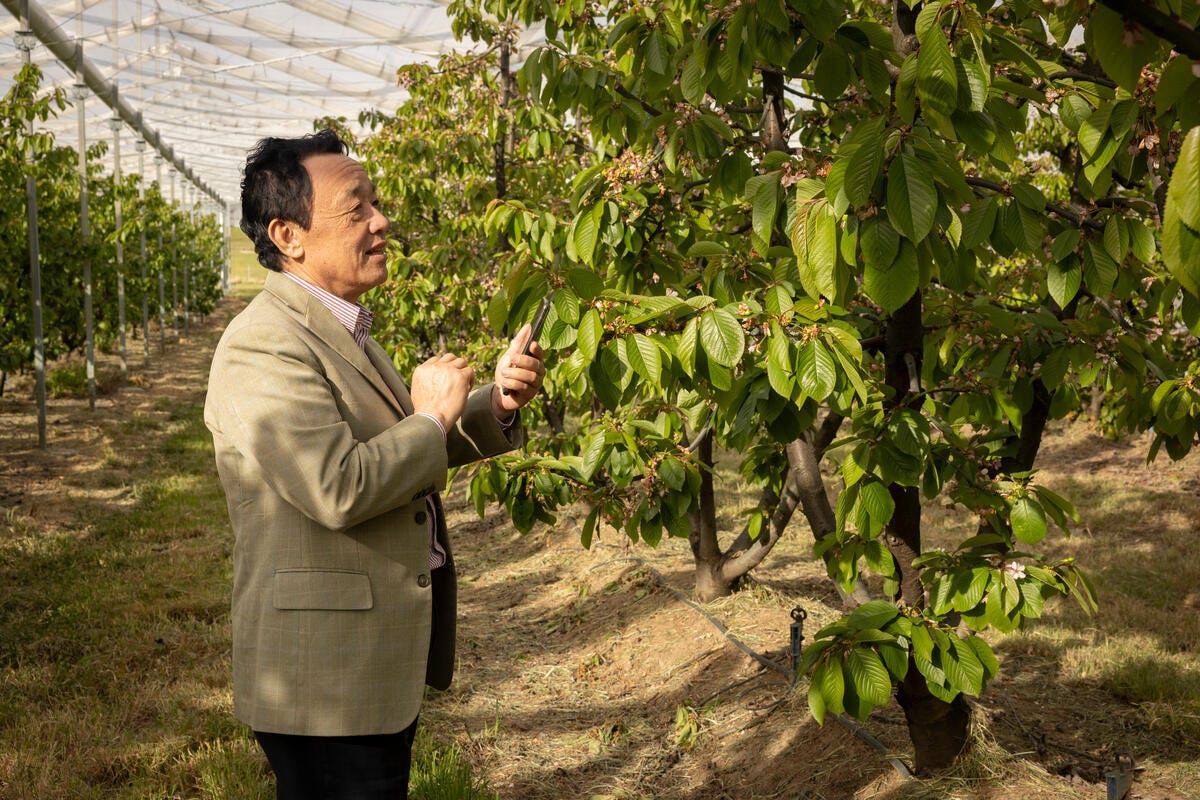Repronews #55: Polygenic screening could cut early disease deaths by 25%
Number of children in Spain falls >15% over 10 years; FAO chief: gene editing can protect traditional foods
Welcome to the latest issue of Repronews! Highlights from this week’s edition:
Repro/genetics
Study: screening for polygenic risk could reduce premature disease deaths by 25% for certain cancers, cardiovascular diseases, diabetes, and more
Population Policies & Trends
Ultra-low fertility Spain: number of children in Spain has fallen 15.5% over past decade, while number of over-65s has increased 17.4%
Further Learning
Qu Dongyu, director-general of the UN Food and Agriculture Organization (FAO), says gene editing “revolution” can help protect traditional foods
Repro/genetics
“Gene screening can cut early disease deaths by 25%, study shows” (Financial Times)
A study by researchers at Stanford Univesity and Genomics plc has found that genetic warning signs would allow health authorities to offer vulnerable groups earlier investigation and treatment.
The scientists used Genomics’ analytical tool, known as a polygenic risk score (PRS), to identify people at high risk from birth of nine diseases. The conditions, which all have existing screening programmes globally, are breast cancer, prostate cancer, colorectal cancer, abdominal aortic aneurysm, melanoma, type 2 diabetes, hypertension, cardiovascular disease, and atrial fibrillation.
The researchers found very high risk individuals reached the average risk levels on which screening programmes are based 12.4 years early. In other words, if a screening programme were devised on the basis of the average risk facing a 50-year-old, this high-risk group would face the same predicted risk at age 37.6.
A group of reduced genetic risk individuals did not reach normal initial screening-age risk levels until about 17.7 years later (67.7 years old in the example given).
Databanks of personal genetic information are transforming scientists’ ability to spot features that make people prone to deadly conditions. Earlier interventions could improve public health and prevent treatment costs and productivity losses.
“We are excited about the potential of genomics in addressing the significant public health challenge of premature mortality,” said study co-author Jack W. O’Sullivan. “By leveraging genomics, we envision a future where patients can experience more personalised care.”
The research, presented at the American Society of Human Genetics (ASHG) annual meeting, analyzed health information of more than 400,000 people from the UK Biobank genetic database.
Genetic prediction tools and early medical intervention could prevent 24.5% of premature, preventable deaths occuring before screening programs usually start.
The recommendations for earlier screening for very high-risk groups ranged from four years in advance for abdominal aortic aneurysm to 22 years for hypertension.
“Knowledge of genetic risk, measured using PRS, has the potential to deliver substantial public health benefits and can prevent significant premature mortality by tailoring existing screening programmes,” said study coauthor and Genomics CEO Professor Sir Peter Donnelly.
More countries are now setting up genetics databases to harness the power of this mass of information and the disease patterns it reveals.
Timothy Frayling, professor of human genetics at the University of Geneva not involved in the research, said the study presented a “credible and important” case for why a simple genetic predictive test covering multiple common conditions “could and should be used.”
“There is no doubt that if, for example, a woman has a high background genetic risk of breast cancer, she would benefit from earlier screening,” Frayling said. “If we are going to screen at all, it makes little scientific and healthcare sense not to add in a simple, cheap additional marker.”
More on repro/genetics:
Researchers develop light-emitting microchip safely measuring energy produced by embryos during IVF, a key indicator of embryo health (Medical Xpress)
“Everyday AI: Artificial intelligence in pregnancy and the early years” (CSIRO)
Gene sequencing company 23andMe “cuts 40% of its workforce, discontinues all therapy programs” (Reuters)
Book review: Neal Baer’s The Promise and Peril of CRISPR (PET)
“Genetic discrimination is coming for us all: Insurers are refusing to cover Americans whose DNA reveals health risks. It’s perfectly legal.” (The Atlantic)
“Taking newborn screening, as a birth right, ahead in Karnataka” (The Hindu)
Population Policies & Trends

“Spain is aging: 15% fewer children and 35% more people over 80 years old than ten years ago” (La Vanguardia)
Spain’s National Institute of Statistics (INE) has released statistics showing the country’s fertility collapse and rapid aging.
As of 1 January 2023, there were 4,489,838 children aged 0 to 10 in Spain, a 15.5% decrease compared to the 5,310,989 counted on the same date in 2013.
The number of people over 65 has risen over the same period from 8.25 million to 9.69 million in 2023, a 17.38% increase.
The number of people aged 85 and over has grown by 35%, while centenarians have increased by more than 36%.
The Spanish population is still growing through immigration, with 134,890 people arriving in the third quarter of this year alone, the highest recorded ever.
Almost 9.2 million people in Spain are foreign-born, 19% of the total population.
Spain’s population is now 48.95 million, up from 40.57 million in 2000.
More on population policies and trends:
“Why feminists in the US are shunning marriage, sex and children after Trump’s win” (The Telegraph)
“Does declining fertility lower the gender pay gap?” (Tyler Cowen)
“Scotland is the South Korea of the UK” (Boom)
Further Learning

“FAO chief: Gene editing key to protecting traditional foods” (Agripulse)
The “genetic revolution” of gene editing can help preserve access to traditional foods in the future, protecting them from environmental threats, according to Qu Dongyu, director-general of the UN Food and Agriculture Organization (FAO).
Speaking in Des Moines, Iowa, on the occasion of the granting of the World Food Prize, Director-General Qu said: “Protecting genetic biodiversity is key to building resilient agrifood systems. By leveraging modern technology to enhance crop diversity, we preserve essential biodiversity and enjoy food diversity.”
“These advancements in gene editing might do more than just improve crop yields; they could also bring people and cultures closer together,” Qu said. “By preserving and enhancing the unique traits of local and indigenous foods, gene editing can help protect our diverse food heritage.”
Qu argued that if ethical concerns can be addressed through “wide consultation and participation,” new genomic techniques “could contribute to the much-needed transformation of global agrifood systems to be more efficient, more inclusive, more resilient, and more sustainable.”
More on human nature, evolution, and biotech:
Evolution
“A billion years of sex differences” (Steve Stewart-Williams)
“Recent evolution of the ability to read and write” (Aporia)
Biotech
Senator Todd Young (R-IN), “Age of biology requires American leadership” (Roll Call)
“Vivek Ramaswamy: From biotech mogul to government efficiency leader” (Devdiscourse)
Agrifood
“CRISPR builds a big tomato that’s actually sweet: Deleting just two genes that control sugar production makes a more succulent fruit” (Nature)
Disclaimer: We cannot fact-check the linked-to stories and studies, nor do the views expressed necessarily reflect our own.



This newsletter is very useful thanks